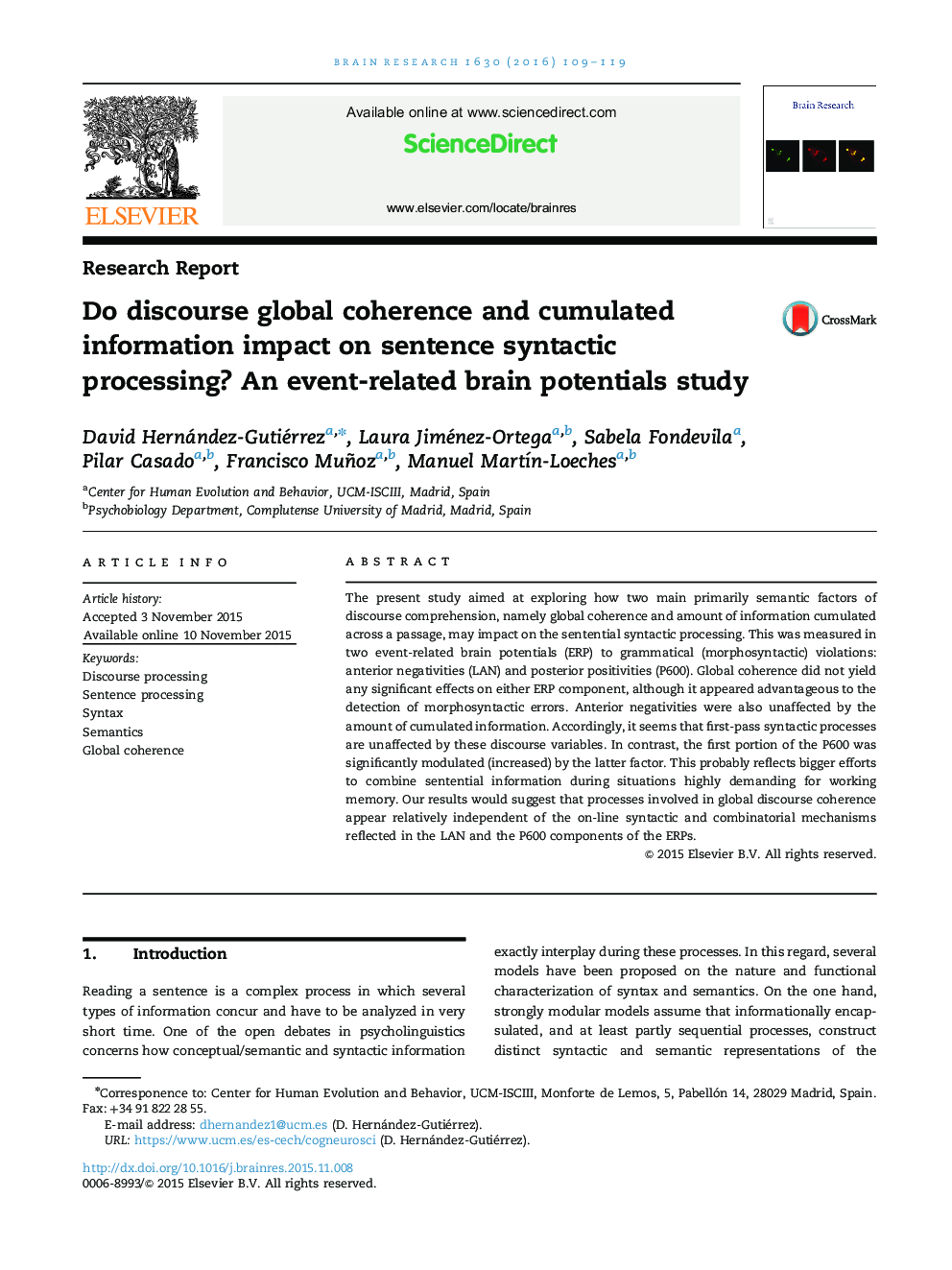| Article ID | Journal | Published Year | Pages | File Type |
|---|---|---|---|---|
| 6262643 | Brain Research | 2016 | 11 Pages |
â¢We examine morphosyntactic processing in a discourse context by using ERPs.â¢We manipulate two discourse variables: global coherence and cumulated information.â¢Cumulated information interacts with late combinatorial operations (P600).â¢Global coherence modulates neither early anterior negativities nor the P600.â¢Morphosyntactic and discourse processes only interact at late stages.
The present study aimed at exploring how two main primarily semantic factors of discourse comprehension, namely global coherence and amount of information cumulated across a passage, may impact on the sentential syntactic processing. This was measured in two event-related brain potentials (ERP) to grammatical (morphosyntactic) violations: anterior negativities (LAN) and posterior positivities (P600). Global coherence did not yield any significant effects on either ERP component, although it appeared advantageous to the detection of morphosyntactic errors. Anterior negativities were also unaffected by the amount of cumulated information. Accordingly, it seems that first-pass syntactic processes are unaffected by these discourse variables. In contrast, the first portion of the P600 was significantly modulated (increased) by the latter factor. This probably reflects bigger efforts to combine sentential information during situations highly demanding for working memory. Our results would suggest that processes involved in global discourse coherence appear relatively independent of the on-line syntactic and combinatorial mechanisms reflected in the LAN and the P600 components of the ERPs.
